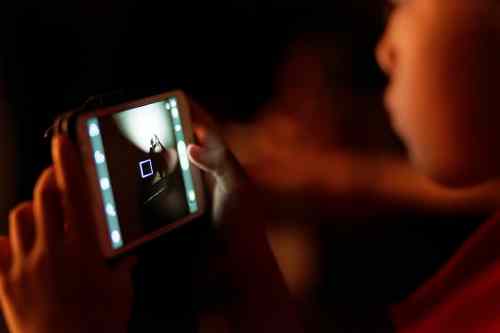
In today’s digital Ghana, children are growing up in a world where screens are part of everyday life.
From online learning and YouTube videos to TikTok challenges and gaming, the internet has become their playground. But just as we teach our children how to cross the road safely, we must also teach them how to navigate the digital world wisely.
The internet is full of opportunities, but also full of risks. Cyberbullying, exposure to inappropriate content, online predators, and scams are real issues that affect children across the world, including right here in Ghana.
As parents and guardians, we have the responsibility to protect our children, not by cutting them off from technology, but by guiding them to use it safely and responsibly.
- Talk About Online Safety Early
Many parents wait until something goes wrong before having “the talk” about the internet. Don’t wait. Explain to your children that just as strangers on the street can be dangerous, strangers online can be too. Teach them not to share personal information such as their school’s name, home address, or photos with people they don’t know personally.
Conversations should be open and ongoing, not once a year. Encourage your child to tell you if something online makes them uncomfortable or confused. The goal is to make them feel safe coming to you, not scared of being punished.
- Set Boundaries and Use Parental Controls
Technology is powerful, but so are parental tools. Most smartphones, tablets, and smart TVs now have parental control features that allow you to restrict what your child can access and how long they can stay online.
For example, YouTube Kids offers age-appropriate content, and both Android and iOS devices allow you to set daily screen limits. You can also install monitoring tools like Google Family Link or Microsoft Family Safety to keep an eye on what your child is doing online.
However, remember that no software replaces active parenting. Supervision, combined with guidance, works best.
- Know Their Online Friends
In the real world, you probably wouldn’t allow your child to befriend just anyone. The same principle applies online. Many predators and scammers pose as children on social platforms or gaming sites.
Get involved in your child’s online life, ask about the people they talk to, what games they play, and which social media apps they use. If possible, follow or connect with them on those platforms. Not to spy, but to stay informed and available.
- Encourage Critical Thinking
Children often believe what they see online. Teach them to question information, recognize fake news, and avoid clicking on suspicious links. Explain that not everyone online is truthful, and not every offer is real.
For older children, discuss digital footprints. What they post online today can affect their education or job opportunities tomorrow. Help them understand that the internet never truly forgets.
Children learn by watching adults. If they see you constantly on your phone during meals or scrolling through social media late at night, they’ll likely do the same. Set the example by practicing healthy online habits yourself, balance screen time, respect privacy, and think before posting.
When children see cybersecurity as a family value, they naturally develop safer habits.
- Community Awareness: It Takes a Village
In Ghanaian culture, community is everything. Teachers, religious leaders, and relatives also have a role to play in promoting digital safety. Schools should include cybersecurity awareness in their ICT lessons, and parents’ associations can organize short digital safety sessions.
The Cyber Security Authority of Ghana has been working to promote such awareness through initiatives like the annual National Cybersecurity Awareness Month, but the message must reach every home.
Final Thoughts
Protecting children online isn’t about fear, it’s about empowerment. The goal is not to disconnect them from the digital world, but to help them use it safely, wisely, and positively.
As parents, we lock our doors at night not because we hate the outside world, but because we love what’s inside. The same applies to our children’s digital lives, cybersecurity is an act of love.
So, this October, as Ghana celebrates Cybersecurity Awareness Month, let’s each take a small step: talk to our children, review their privacy settings, and model safe online behavior. Together, we can build a safer digital future, one family at a time.
–
By
Emmanuel Danso-Boafo is a Cybersecurity and GRC Consultant focused on data protection, digital resilience, and security governance. He is passionate about promoting cybersecurity awareness across Ghana.
Connect with him on LinkedIn: linkedin.com/in/emmanueldansoboafo | Email: [email protected]
DISCLAIMER: The Views, Comments, Opinions, Contributions and Statements made by Readers and Contributors on this platform do not necessarily represent the views or policy of Multimedia Group Limited.
DISCLAIMER: The Views, Comments, Opinions, Contributions and Statements made by Readers and Contributors on this platform do not necessarily represent the views or policy of Multimedia Group Limited.
Source: myjoyonline.com










